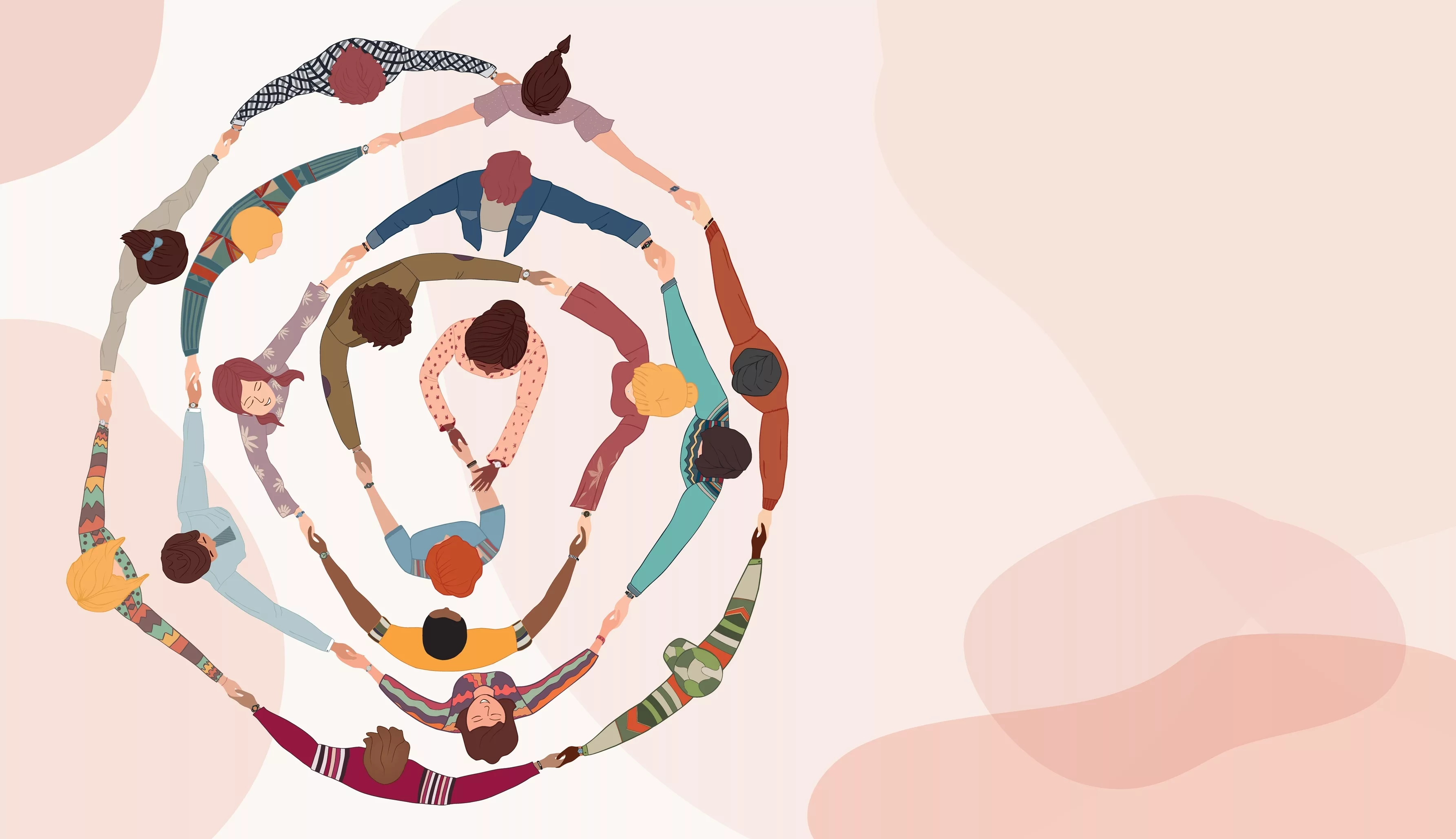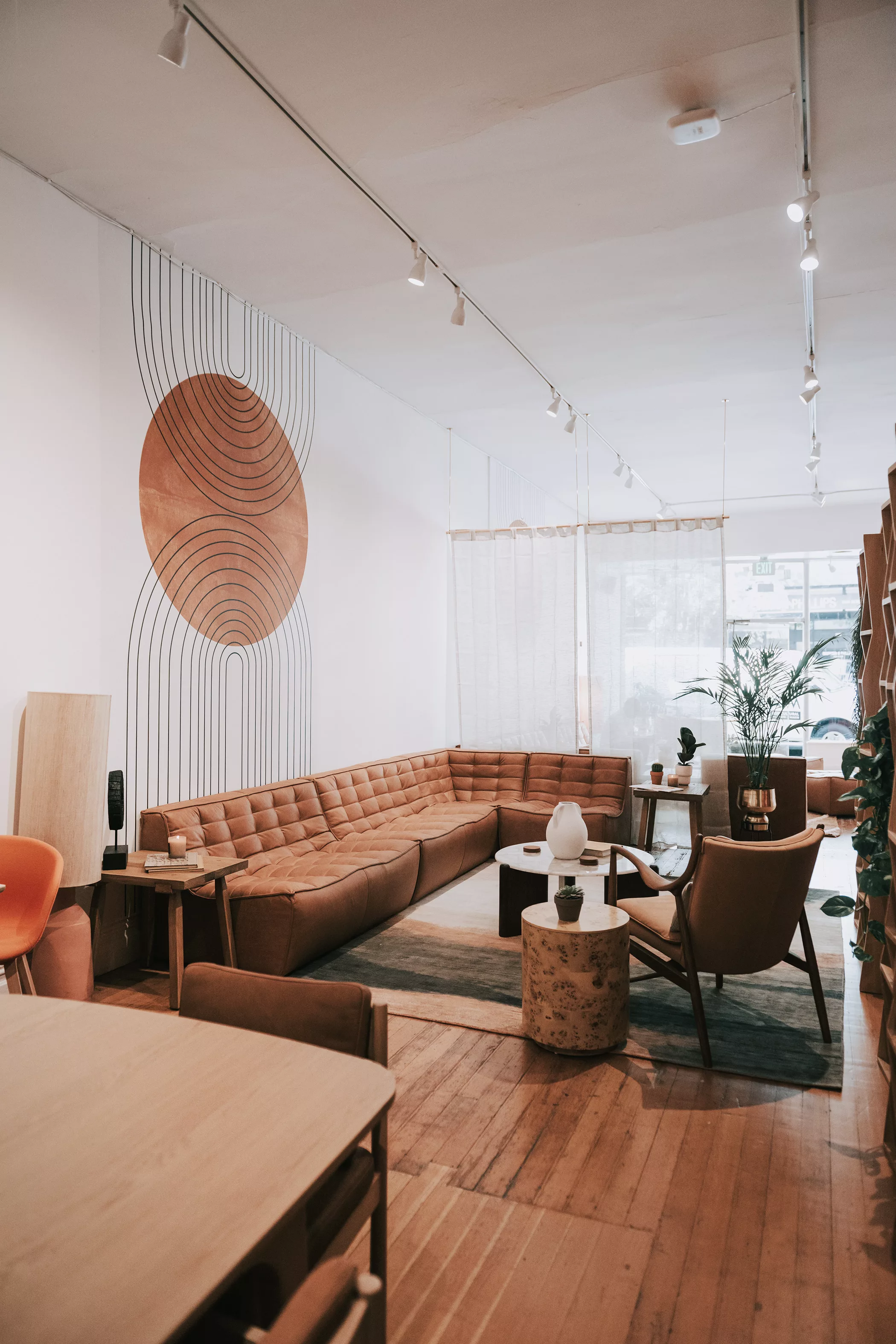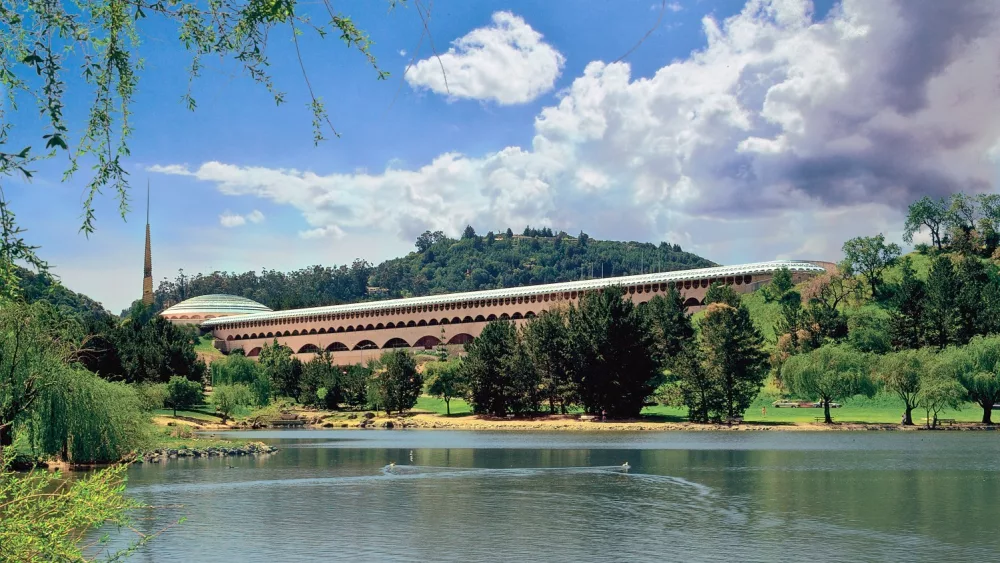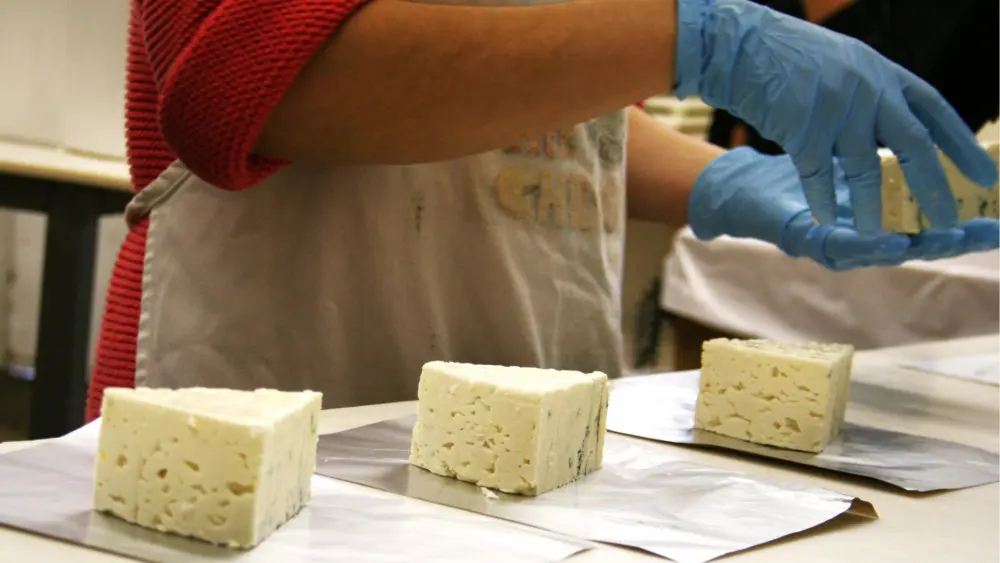
Groundfloor was created as a solution to a friendship-starved society.
Co-founder and CEO James Snedden describes a phenomenon that happened during the pandemic—people were stripped of their routines and eventually realized they missed the comradery that developed in a physical office. Snedden, of course, was speaking from personal experience.
But, even after the pandemic subsided, many offices remained closed—and for many the social isolation continued. That’s where Groundfloor comes in—its website bills itself as “an inclusive community of people… looking to build meaningful relationships”—or, more cozily: “the home of new friends.”
With the help of his co-founders, Jermaine Ijieh and Leutrim Rexhepi, Groundfloor moved quickly from inspiration to reality—offering a community space to meet new people and get reacclimated with socializing.
The debut location of Groundfloor opened in 2021 at 455 Valencia St. in San Francisco—a site equipped with a private lounge, library, wellness space and gym. With the influx of applications that the SF club accrued, Snedden and his team realized that an expansion was a must, soon adding Oakland and San Rafael—its first North Bay location—to the mix. A Los Angeles club is planned to open later this winter. Each individual location has a membership capacity of 500.
Being isolated from society during the pandemic took a well-documented toll on mental health. According to one report by the Centers for Disease Control, which surveyed adults across the U.S. in late June of 2020, “31% of respondents reported symptoms of anxiety or depression, 13% reported having started or increased substance use, 26% reported stress-related symptoms, and 11% reported having serious thoughts of suicide in the past 30 days. These numbers are nearly double the rates that were expected before the pandemic.”
Through his Groundfloor clubs, Snedden is hoping to bridge that gap between isolation and community for the purpose of improving mental health. Demand for such of social interaction proved evident and Groundfloor is in full-on expansion mode.
“Each of our spaces is very different and responds to that particular locality,” says Snedden. “We also populate the space with the help of local partners, everything from the art on the walls to the drinks in the refrigerator to the curation of the books in the library is facilitated by members of the community each time.”

In order to become a member of Groundfloor, participants must first go through a screening process. This involves completing a 3-minute application, meeting with the membership team and visiting one of the four locations. If the applicant is approved, then for a $200 a month fee, members are able to access all Groundfloor locations and amenities.
According to the Groundfloor website, “Groundfloor is committed to representation. We never turn away an applicant because of membership fees, and regularly offer discounts to applicants from marginalized communities and others through the Groundfloor Scholarship.”
Those seeking connection and community will be happy to know that Groundfloor has instituted a process, via technology, within the organization to match up people with similar interests hoping to foster those friendships. As far as accepting new members, through an interview process the membership team will determine if your values align with those of Groundfloor.
“We are filling the void left by the demise of the physical office. A place to work, relax and share in human connection, inspired by social clubs of yesteryear, and modern community centered design, fit for the post-COVID 21st century,” says Snedden. For more information visit groundfloorclub.com.



